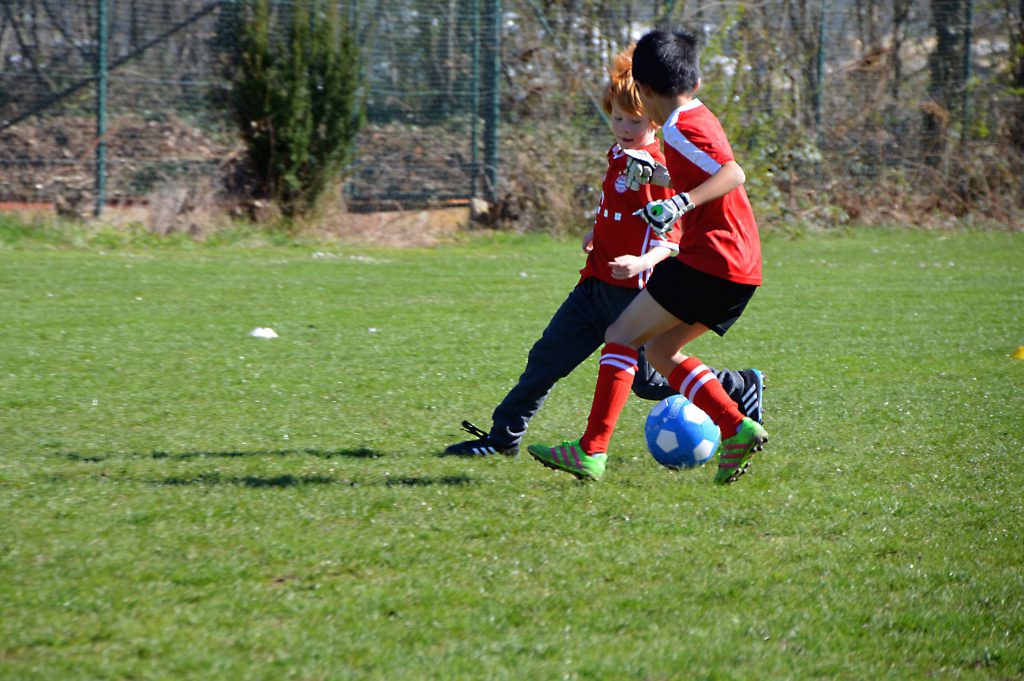
Did you know September is National Youth Soccer Month? Children of all ages can practice basic soccer skills, and school-aged children can join a local team. They may even enjoy playing a casual game with their friends and neighbors!
Here are a few soccer fundamentals your children can practice. Children that are too young to play organized soccer can try the first four techniques and get into organized games when they are old enough.
- Dribbling: moving the ball with your feet around the field
- Receiving: getting the ball from another player after they pass it to you
- Passing: kicking the ball to another player
- Shooting: getting the ball into the goal
- Heading: using your head to control the ball
- Tackling: using your foot to get the ball away from the player in possession of it, usually involving some contact with that player
To learn more about these fundamentals, visit http://ww2.nscaa.com/education/resources/fundamentals/dribbling.
Soccer is a great sport to improve heart health and prevent heart disease. Also, playing soccer can improve muscle and bone strength and reduce fracture risk. It’s a fun way to relieve stress and help keep blood pressure low!¹ Children can improve their balance and gross motor skills by practicing soccer fundamentals.
If your children don’t play soccer on a team, they can still play casually! You may be able to find a field at a park or at an open-access school or faith-based community (make sure to call and see if your children can use their facilities). You can also try the Soccer Field Finder app or this website to find soccer fields near you!
Where can your children play soccer this week?
References
- https://www.sciencedaily.com/releases/2010/04/100406093524.htm